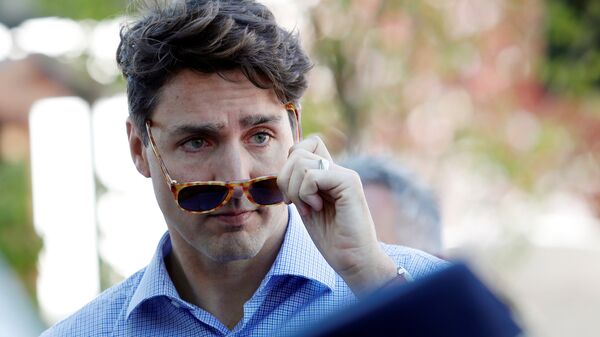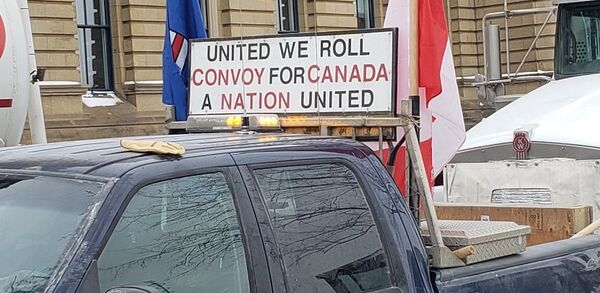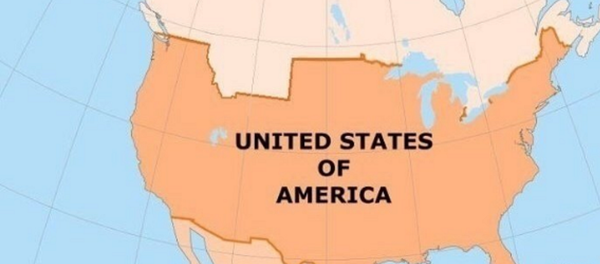Sputnik discussed this story with Rémi Tremblay, the editor of Le Harfang and a contributor to the Council of Euro-Canadian and the author of Le Canada français, de Jacques Cartier au génocide tranquille.
Sputnik: How seriously will the Trudeau scandal hurt his chances of victory in the next election? Do you think it is a coincidence that this scandal emerged just a few months before the election campaign will officially begin?
Rémi Tremblay: The timing could not be worst for the Liberals, with the elections being just around the corner. It is extremely hard to evaluate the impact on the vote, but ethics has always been the Achille's heel of the federal Liberals. One of the reasons that explain the Conservative victory of 2006 is the corruption scandal revealed by the Gomery commission of inquiry. It took ten years for the Liberals to finally regain Canadians' trust and this new scandal will certainly hurt them. The question is simply to what extent. To add to that, although the decision has nothing to do with politics, Stéphane Roy, a former SNC-Lavalin employee accused of being involved in the corruption scandal in Libya, has seen his charges dismissed this month because the judicial procedures were too long. For many Canadians, it gives the feeling that the men involved will be able to avoid facing justice for what they have done. It is hard to believe that the timing of the revelations is a coincidence, but we must keep in mind that it is the Globe and Mail that first unveiled this scandal to the public. The Globe can definitely not be labelled a Conservative newspaper. We can doubt that it was published to intentionally hurt Trudeau's campaign. In fact, Trudeau could have tried defusing the whole affair and ensured the story deflated quickly and be long forgotten by this fall's elections.
Rémi Tremblay: Butts, although he may not be well-known to the general public was Trudeau's policy maker, his mastermind as well as a close friend since McGill's years. In September 2015, Macleans ran an article about Butts, describing him as the man who "has shaped and branded the vast majority of policy" that Trudeau campaigned on. Since then, his influence has increased, not decreased and he was called "PM Butts" by some Liberal caucus members. Trudeau, who sees himself as a delegate, an ambassador, relied on Butts for actual policy-making and explained to his MPs that what Butts said could be considered to be Trudeau's own thoughts. Trudeau Senior had Gérard Pelletier, and Trudeau Junior had Gerald Butts.
Sputnik: Both other major parties (the Conservatives & NDP) have spoken out in support of a public inquiry into the Trudeau SNC-Lavalin scandal. Could this lead to new revelations?
Rémi Tremblay: The question that is still left unanswered is the personal involvement of Trudeau. The pressure on Jody Wilson-Raybould and the fact that she was subsequently downgraded to the Veteran Affairs, even if she had been a much publicized caucus member, shows that the pressure came from the top of the government. The resignation of Butts gives the impression that he was the one who actually put pressure to avoid prosecutions for SNC-Lavalin, but he could very well be taking the shot for his personal friend Trudeau. Has tried taking the blame to save private Trudeau? It is the impression left by the move and it is what the Conservatives and Neo-Democrats would like to know.
Rémi Tremblay: The way the whole affair was handled by the government does raise legitimate questions. It is now said that the decision for not suing the company was based on economically based reasons. With around 16 000 employees in Canada, its bankruptcy or major losses could have had a major impact on the economy. However, it is extremely hard to believe that the Liberals did so for economic reasons. If it was so, they would probably have been open about it and not acted the way they did. If the reason was purely rational and for the benefits of Canadians, the Liberals would have been open and transparent about it and would not have pressured and later retrograded Wilson-Raybould.
The thing is the Liberals have had many issues with ethics and corruption in the last decades, so their credibility is limited at best. And we must not forget that SNC-Lavalin is itself accused of corruption. So the whole affair is suspicious, not to say more. As for SNC-Lavalin, allegations of corruption and fraud have been made several times in the past. Since 2010, it has been caught in a fraud linked to McGill's superhospital, bribery in Bengladesh, and was denied contracts by the World Banks because of wrongdoings in Cambodia. It has been hit by the longest ban ever imposed by the World Bank. So there again, it is far from being a spotless record and the credibility is questionable.
Rémi Tremblay: In my personal opinion, many media genuinely try to understand what is going on in Ottawa. No one saw the scandal coming and Butts' resignation was a unanimous surprise. We have seen some Canadian media trying to imply that Trudeau defended SNC-Lavalin because it was from the province of Quebec or much respected CBC explaining that this was damageable for Trudeau as he had lost his only Native minister, but they really miss the point. They just prove how narrow minded they are and the CBC has truly ridiculed itself with that analysis.
What is important to note though is that most media focus on the surface: how Trudeau has handled the affair since the Globe's revelation. But this goes deeper than that. This whole affair first raises the question of corruption in Canada, an issue that is closely linked with the Liberal Party, and also the separation between justice and politics. There again, the questions raised seemed very important. Why does a politician have the power to stop prosecution or alter the course of justice? Talking about the lack of Native representation in Ottawa is a convenient way out of this debate.
The views and opinions expressed by the speaker do not necessarily reflect those of Sputnik.




